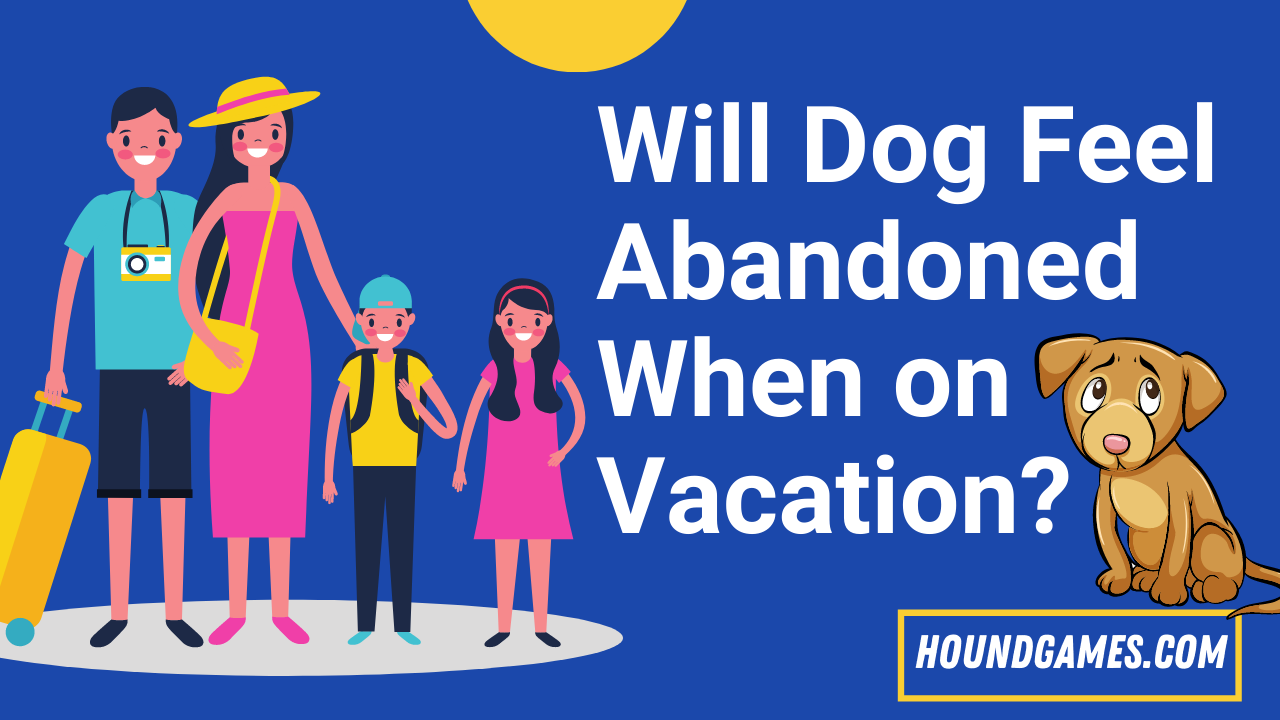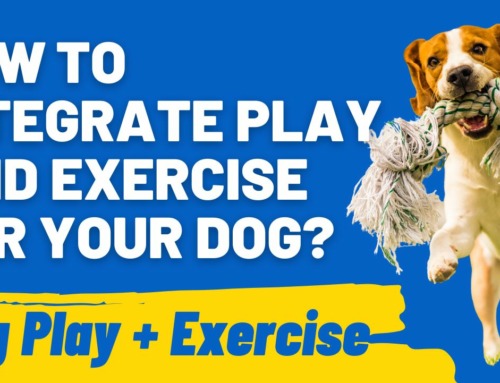Leaving our dogs behind on vacation can be heartbreaking. After all, what if they think we aren’t coming back? That can be a source of guilt when they can’t join us on vacation. In some cases, dogs can be so attached to us that we may even call off our vacation plans altogether! But will your dog really think you abandoned them when you go on vacation?
Do dogs miss their owners on vacation?
Dogs usually don’t miss us the way we miss them, and it’s all down to how their memory works. However, they can grow depressed and distressed if you’re gone for a long period. After all, you are the most vital part of your dog’s pack.
To better understand how our dogs can get on just fine without us, we must understand how they experience their memories, and how they stay in the present moment.
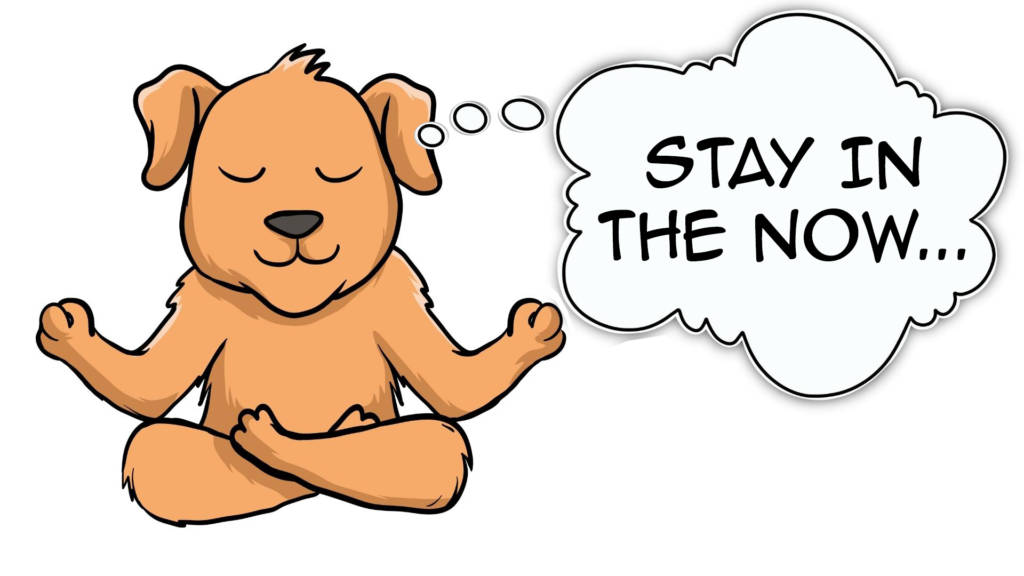
Dogs don’t have a running narrative
We form deep emotional bonds with our pets, so we naturally try to predict how our actions might make them feel. Unfortunately, this means that we often impose very human ideas and emotions on our four-legged companions.
Those human concepts reflect the way we remember things. Our lives are a running narrative, and we experience events with one foot in the past and the other in the future. As a result, we can fixate on missing things, people, and pets that aren’t with us now.
Dogs don’t experience the present moment in the same way. Your dog lives in the moment, and it’s the only moment that matters to them. Because of how a dog’s brain works, their memory doesn’t put together a story.
By ‘story,’ we mean concurrent moments where one event follows the next. Therefore, most of what they feel depends on their working or short-term memory. At best, dogs have a working memory of about 2 minutes.
Are you interested in reading our post, Puppy Humping: Is it normal and what to do?
So how do dogs remember us at all?
Until recently, we believed that dogs had only one very basic type of memory called associative memory. This is a kind of memory where an animal remembers the relationship between two things.
A good example of associative memory in action is how your dog responds when you pick up their leash. They know that a walk is likely to follow when you pick their leash up. We used to think this was how our dogs remembered us as well.
Studies have recently found evidence suggesting that dogs also have a more advanced memory called episodic memory. And it is this memory that they use to remember us.
Episodic memory helps dogs form a connection between people and experiences. In other words, the more great moments you share with your dog, the more important you are to them.
How does their memory keep my dogs from missing me?
Because your dog’s memory of you is all about positive associations, they feel those happy feelings again when they see you. When they don’t see you, nothing triggers them to feel otherwise. In dogs with separation anxiety, it can trigger extreme distress.
For most dogs in a comfortable and secure environment, the bond with you is still there if you are gone, and the connection you share is as strong as ever. It’s just that you are not at the forefront of their thoughts if you are not present. So, your dog simply gets on with whatever they are doing at that moment.
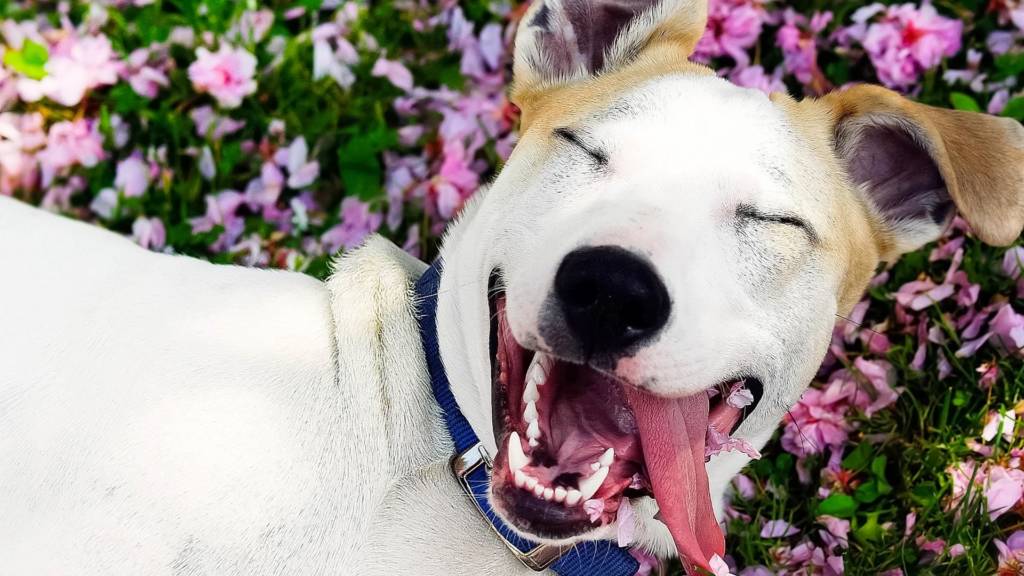
Where your dogs stay while you’re gone makes a difference
The extent to which a dog is distressed when their owners are away can depend on how secure your dog feels without you. This will also depend on whether they are boarding at a kennel, staying with a friend, or having someone take care of them at home.
At a kennel, there are many unfamiliar sounds and sights. A dog can easily appear to miss their owner while feeling anxious about the new surroundings.
It is the same when they stay with a friend, unless they often go for playdates and sleepovers. In that case, they might not even notice you are gone while they live in the moment and enjoy themselves.
The most comfortable they will probably be is if someone takes care of them at your home. This is their own environment and a safe space. Unless the caretaker makes abrupt changes to their routine, a well-adjusted dog will likely cruise through every day like a regular day in their lives.
If the caretaker is someone your dog has known since they were a puppy, all the better!
If your dog has to stay somewhere else, then it’s vital they take a part of their home with them, like their bed and maybe a T-shirt of yours for your scent. We totally recommend these gorgeous dog blankets, because they will soak up your house scent and they’ll be your dog’s familiar cozy blanket.
You can buy one here if you love them as much as I do!
To learn more about whether your dog will remember you, check out our article Will My Dog Remember Me?
You might also want to read: How long after getting a puppy can you go on holiday?
If you are going out of town and needing to have your dog boarded or kept at someone else’s home, it might be a good idea to do a short trial run. This will give you a chance to hear how your pet responds to being in a new environment, before you are potentially hundreds of miles away. Additionally, this will give your pet an opportunity to familiarize themselves with new sights and smells. Staff at a boarding facility will also benefit from getting the chance to meet your pet prior to them being dropped off for a longer period. Dr Marti DudleyVeterinarian Comment
What do dogs think when you leave them?
We know that dogs see the world very differently. While we live in a running narrative, our dogs experience life as an everpresent ‘now.’ That said, science is only scratching the surface of how our canine friends think.
They form an intrinsic part of our lives, and we forget to acknowledge that they are still dogs and not just furry four-legged human companions.
As an animal, your dog reacts in the following ways:
-
Instinctively
-
Reactionary to reinforcement, whether it is positive or negative
-
To episodes and events
-
Through stimuli
-
Or through conditioning by training
This means they do not mull over their thoughts or think about events the way we do. Instead, they are very much aware of what is happening in the moment and how it currently affects them.
Keep in mind that it’s an important survival skill. Animals have to focus on surviving the perils of nature.
Would you like to read our post, Petco vs PetSmart: Which is Better 2023
How to take care of your dog when you go on vacation
When looking for the ideal way to take care of your dog while you are on vacation, there are a few key points to keep in mind.
A trusted and reliable pet sitter at your home is the best option, or a known friend who can keep your dog for a while. But a quality boarding kennel can also help solve the issue.
It’s good to check reviews for client experience before choosing a boarding kennel. However, you need to start looking well in advance so that you can find out the best kennel for your dog.
Word of mouth is another good way to find a trustworthy boarding kennel or pet sitter.
It’s also important to make sure that:
-
All of your dog’s medication is packed and ready (if they have any).
-
You have prepared enough food for the time you are away.
-
You leave all the details of your veterinarian.
-
You make sure the person taking care of your dog can contact you in an emergency.
-
All their vaccines are up to date if they go to a kennel.
Do dogs think you’re never coming back?
We’ve discussed how dogs don’t live in the past the way that we do. Likewise, they don’t spend time trying to map out the future the way we do.
Unless your dog suffers from separation anxiety or some form of trauma, they don’t necessarily have definite thoughts about whether you are coming back. For a happy and secure dog, you will come back because you have come back before. However, that doesn’t mean your dog won’t miss you or grow distressed if you are gone too long. This is especially true if your dog is anxious.
If your dog shows signs of anxiety, here are some of the best products that can help 7 Proven Products for Dogs with Anxiety
You might also like to read our post Why Is My Dog So Clingy? (Revealed) if you return from time away from your dog and find them clingy.
Signs that your dog misses you
We know that dogs don’t miss us the same way we miss them, and we understand that it has nothing to do with the bond we share with them. That said, dogs are evolved to bond closely with humans, and so being separated from “their” humans can still be deeply distressing and confusing.
For one, they might experience something that seems similar to depression. Furthermore, your absence can impact their routine, leading to several behavioral problems. It can also cause them anxiety and a sense of insecurity.
Signs that your absence has a negative impact on your dog include:
-
Destructive behavior, such as destroying furniture
-
Refusing to eat
-
Lethargy or reluctance to leave their bed or crate
-
Anxiety or fearfulness
-
Uncharacteristic aggression towards other pets or people
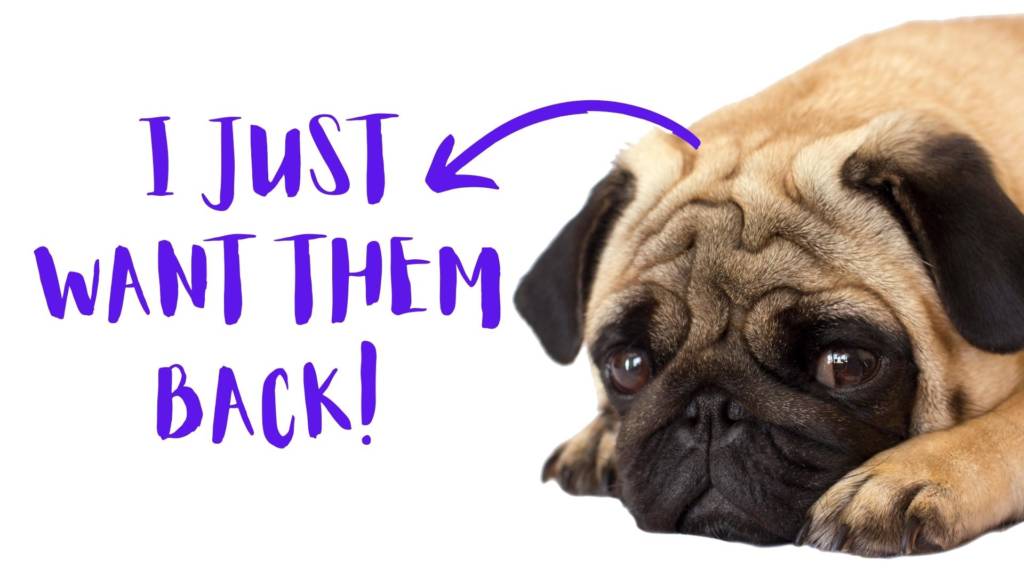
Is your dog ignoring you after you get back from vacation?
Very rarely, a dog might ignore you after your vacation. Although most dog owners get greeted with hysterical behavior upon their return home, some get the cold shoulder. Research shows that dogs have the capacity to hold grudges if they feel hurt or slighted. If you have been gone a long time, this can cause your dog to ignore you when you return. They may even act out by peeing inside the house or something similar.
In this event, patience will win your pup over. Do not encourage sulking by making a fuss. Rather give them time to adjust. When they do come to you, do something fun like going for a walk or playing fetch. Soon the positive feelings will override the memory that were missing.
In some cases, a dog ignoring you could be a sign of something else going on. It is particularly alarming if the behavior is coupled with fearfulness. Such behavior could indicate that your dog had a negative experience while you were away and may even point to abuse-related trauma.
Some other possible reasons why your dog seems as though they are ignoring you:
-
They are feeling tired after what might seem like an adventure to them.
-
If the kennel offers fun activities every day, they might just need to get used to being home again.
-
They might need to get used to their old routine again.
-
They could have caught something and aren’t feeling well.
Whatever the case may be, consult your vet if the behavior persists. And in the meantime, here is a blog post that could help regain their trust: Is Your Puppy Scared of You? Do this…
Dog depression after boarding
Some dogs show signs of depression after boarding. Again, there are many possible causes for this. Signs your dog might be depressed include:
-
Listless and lethargic behavior.
-
Nothing excites your dog the way it did.
-
They are not keen on playing.
-
They show no interest in their toys.
-
They keep to themselves and only feel comfortable in their safe spaces.
-
They experience a loss of appetite.
-
Abnormal behavior like growling, crouching, and anything different from normal behavior.
Possible reasons why your dog has depression after boarding:
-
Your dog just needs time to readjust after boarding.
-
The trip there and back was stressful, and they felt anxious.
-
The kennel environment was stressful.
-
They found the experience overwhelming, and yes, they missed you.
Dogs communicate their distress as they communicate everything else through their behavior and body language. Therefore, you must pay close attention to any signs that something bad may have happened while you were away.
Nevertheless, a depressed dog needs proactiveness on your part. For depressed dogs, it is essential to:
-
Re-establish a daily routine.
-
Get home life back to normal as quickly as possible.
-
Encourage your dog to participate in their favorite activities, such as walks, playtimes, hikes, or anything that will get their body moving.
-
Try to tempt your dog out of their funk with interesting puzzle and chew toys.
-
Appeal to your dog’s senses by taking them places with interesting smells, playing music, and using massage to release feel-good hormones.
-
Engage your dog’s brain with fun games like hide-n-seek, or reward-based training.
-
See the vet for a check-up and rule out any physical problems.
Final word
As close as the bond that we share with our dogs can be, there is a lot we don’t know about how they think and feel. So it stands to reason that our dogs’ experiences differ greatly from ours.
Our dogs will not necessarily think we abandoned them if we go on vacation. A secure and well-adjusted dog will also cope well if you are gone. Nevertheless, for some dogs, the experience can be distressing and they may become distressed, even refusing to eat while you are away. In these cases, it’s vital to help teach your dog to cope with separation anxiety and keep them in the best environment while you are gone.

